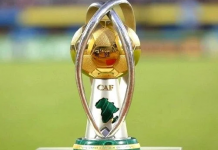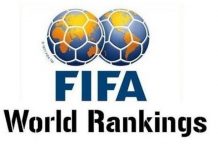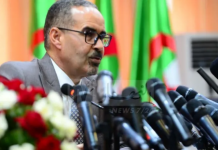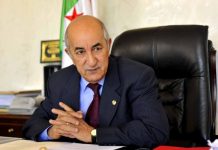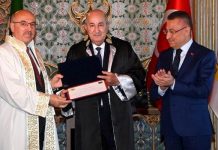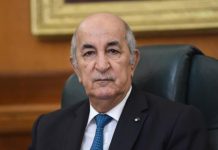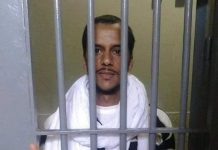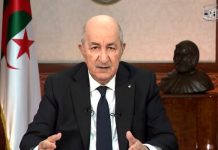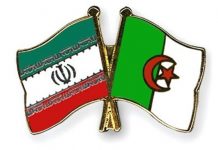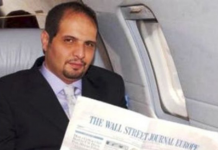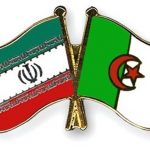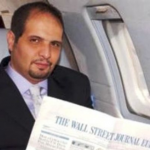ALGIERS- The Embassy of South Africa in Algeria will send, on Tuesday, June 07th, 2022, school supplies-related aids to the Saharawis at the Refugee Camps in Tindouf as part of South Africa’ solidarity efforts and contributions with a view to promoting access to education among the Saharawi children, declared the Chargé d’Affaires of the Embassy, Dr. SP Rankhumise.
Dr. SP Rankhumise highlighted, at a Press Conference on the People-to-People Solidarity Project with Western Sahara, held at the headquarters of the Embassy, that “this initiative is the second of its kind following that undertaken in June 2021, aimed at providing educational support to the government of theSahrawi Arab Democratic Republic.”
The same official further explained that “the motives behind the launch of this campaign are the inadequate infrastructures and the lack of equipment guaranteeing the proper functioning of the Saharawi educational system”.
” It was observed that the Saharawi pupils are taught under a sub-standard learning environment with inadequate infrastructures, including classes, administrative buildings, air conditioners, and furniture,” noted the Chargé d’Affaires.
The beneficiary of the project would be the victims of Soweto elementary school situated in the province of Aousserd, located in the Sahrawi refugee camps in Tindouf. Noting that this educational establishment was named after a city in South Africa known for its resistence against the Apartheid system.
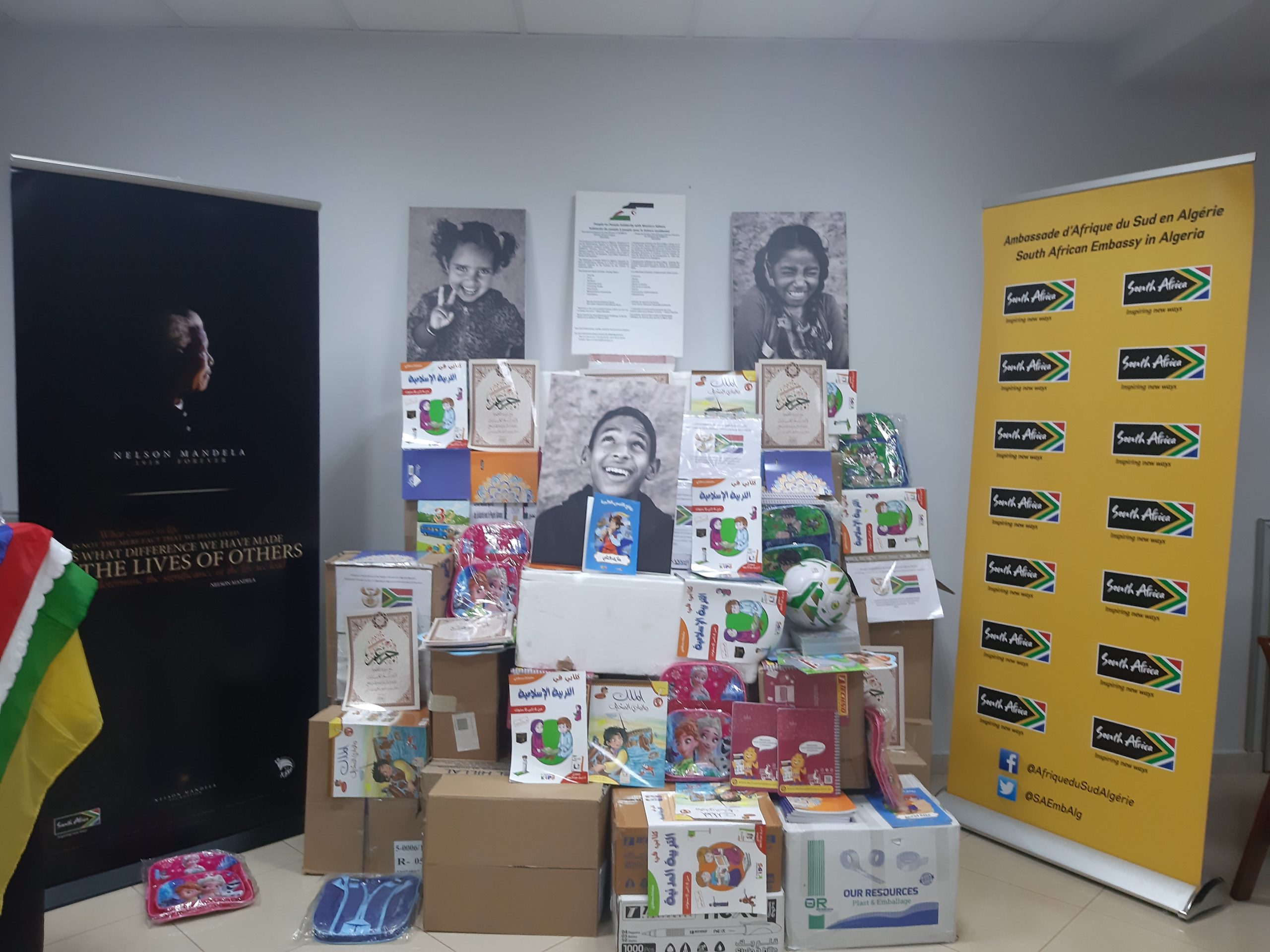
Mr. Rankhumise underlined that the embassy of his country has perceived, through its regular working visits to the Sahrawi refugee camps, the need to support the educational support of Sahrawi students, which motivated the launch of this project.
With regards the contributors to the consignment, Dr. SP Rankhumise emphasized that his embassy received overwhelming support from different embassies, namely; Kenya, Namibia, Tanzania, Vietnam, and Zimbabwe, along with the Algerian Committee on Solidarity with Saharawi People and Saharawi Resources Energy and Irrigation Company.
Present at the press conference, Namibia’s ambassador to Algeria, Panduleni-Kaino Shigenge, drew attention to the right of Saharawi children to education, stressing that one of the most important decisions taken by her country concerning Western Sahara is to continue to support Sahrawi children and contribute to the provision of school affairs so that they can acquire knowledge.
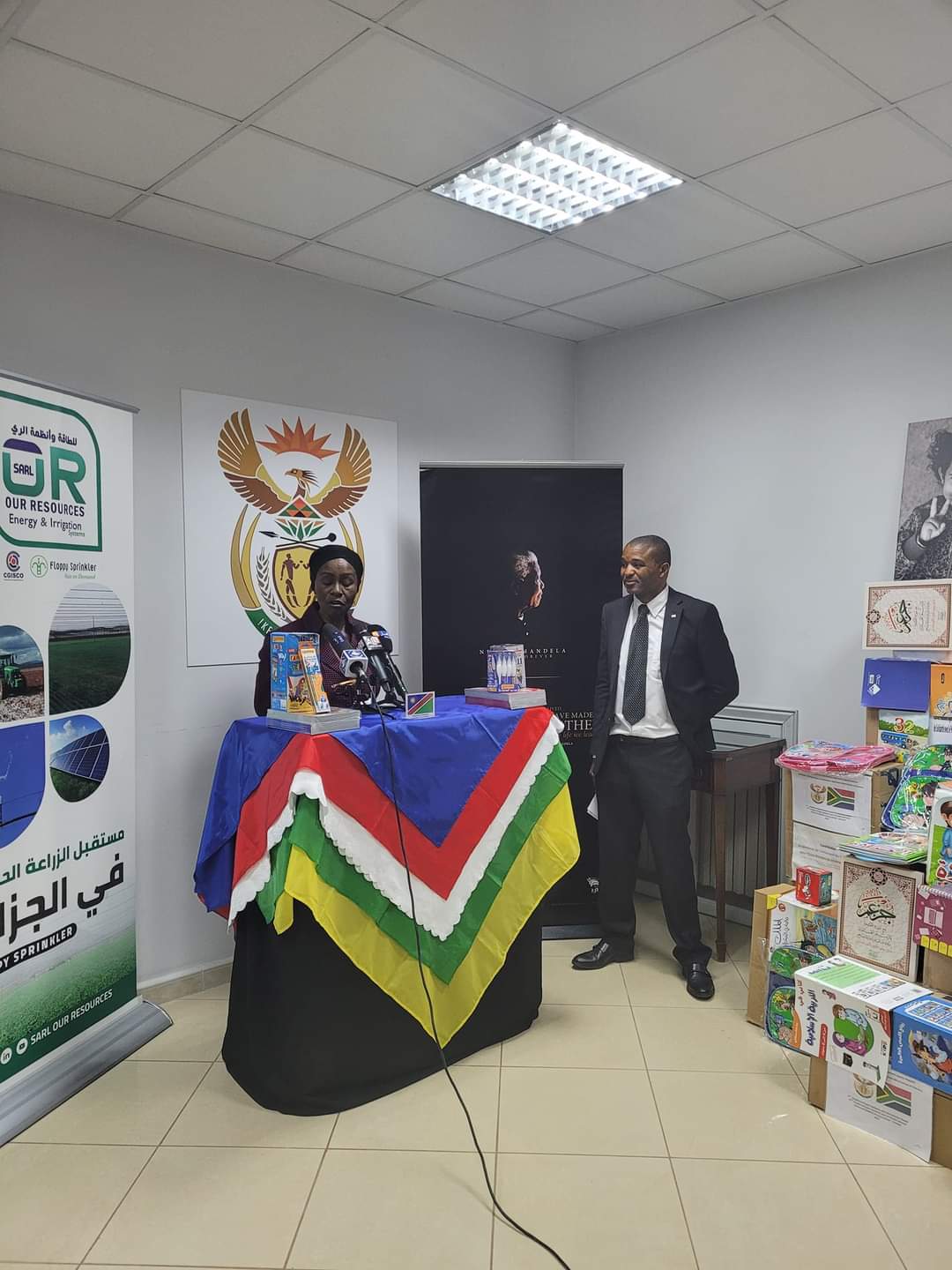
The diplomat reiterated Namibia’s firm and unwavering position regarding the Sahrawi cause and the right of the Sahrawi people to self-determination, stressing that it is not just about her country, but also the whole African continent.
In this regard, she called on the Kingdom of Morocco to sit down at the table with the Polisario Front, the sole representative of the Saharawi people, without preconditions, in order to reach a “just, equitable and long-lasting” solution to the conflict in Western Sahara.
For his part, the First Secretary of the Embassy of Western Sahara in Algeria, Mohamed Cheikh, praised the efforts made by the aforementioned embassies accredited in Algeria to collect school aid for the benefit of Sahrawi students.
Interviewed by DZ Breaking, the Chargé d’Affaires of South Africa Embassy, Dr. SP Rankhumise stated that the initiative is inspired by his country’s position in favor of the Saharawi people as the South African Development Committee has committed to provide support for the Saharawis.
“This project is one of the many ways through which we operationalize solidarity with the people and government of Western Sahara,” he emphasized, noting that these actions of solidarity, initiated by South Africa, are out of love and stem from the principle of humanity.
He informed that he would be present on Thursday, June 10th, 2022, at the Refugee Camps to oversee the teaching-learning material delivery ceremony with the beneficiaries, and the SADR government at local, Wilaya and national levels in attendance.
And to add : “As the Embassy, we pay visits to the Camps three times a year to illustrate our government’s engagement with the civil societies there, so that we have first hand information and updates on the developments in Western Sahara,” noting that: ” South Africa is very clear that it will continue supporting the Saharawis until a referendum to self-determination is held to determine their sovereignty.
In a response to a question on the support received by different African embassies, and institutions in Algeria, which made valuable voluntary contribution, he indicated :
“The school supplies-related aids are provided by different embassies as a sign of support to the Sahrawi people. The shipment of aid is made up of different items, including, among others, colours’ pens, pencils, rulers, schoolbags, stories for kids, Holy Coran, religious and educational books, as well as notebooks. This involvement testifies to their commitments in the struggle to ensure that the question of Western Sahara is resolved through the holding of a self-determination referendum in line with United Nations’ resolutions in this area.”
He further explained that his country is diplomatically fully involved in the struggle. “The South African government is actively pushing political campaigns in this regard. For our part, we are pushing the diplomatic ones. This type of support is intended to promote the enjoyment by the Sahrawi people of their fundamental human rights because we believe that the right to education is a basic one. To this end, by providing educational support, we are contributing to a practical enjoyment of the right to education”, he noted.
The South African official did not fail to hail Algeria’s leading role in favor of the Saharawi cause, pending the implementation of the historic resolution 1514 of the General Assembly, which establishes the right of colonized peoples to self-determination and independence. Algeria, noteworthy, will always remain peace patron at the regional and international levels. Algeria has always reiterated its keenness to continue to support the Saharawi people to realize their right to self-determination and independenc.
Asked whether Algeria is facilitating the procedures for the embassy in order to serve the interests of the Saharawis people, he replied : “As you Know, Algeria is playing a key role in terms of solidarity with Western Sahara, providing all types of support. We consult with the government of Algeria with regard to this file. Algeria is indeed blessing our activities”.
In a related context, he referred to the first project, undertaken in June 2021, that comprised provision of the teaching-learning material received through voluntary contributions by staff members at the Embassy.
In this aspect, the Saharawi Envoy seized the opprtunity to express a vibrate thanks to the participating embassies, individuals, corporate sector and institutions in Algeria involved in this charitable initiative.
As for the upcoming initiatives, he declared that a new collection operation will soon be launched for the third project, pending the announcement of the 4th edition, expressing the wish to see these initiatives and projects growing in leaps and bounds until the people of Western Sahara attain their independence.
“It is our dream that this project continues in the liberated Western Sahara because it is an educational support,” he aspired, adding : “We will use everything within our affordability and resort to our creative minds to make sure that we provide moral, psychological and material support to Saharawi children, women, and the Saharawi people in general. We are focusing on educational support inspired by the words of President Nelson Mandela who insisted that (The best way to liberate a nation is by educating its children).”
The official wrapped up the interview by renewing his country’s unwavering and principled position in favor of the Saharawi people until they snatch their independence, and end the illegal occupation by the Kingdom of Morocco, while expressing gratitude for the government and people of Algeria for their constant support and solidarity with the Saharawi cause.
He went on saying : ” I reaffirm my country’s continued solidarity and support for the Saharawi people, while emphasizing the imperative to guarantee all the necessary means to promote the access of Saharawi children to quality education.”
“As we continue to provide solidarity support to the people of Western Sahara, let us be inspired by the words of President Nelson Mandela who reminded us that : It is not beyond our power to create a world in which all children have access to a good education. Those who do not believe this have small imagination,” concluded the Chargé d’Affaires.
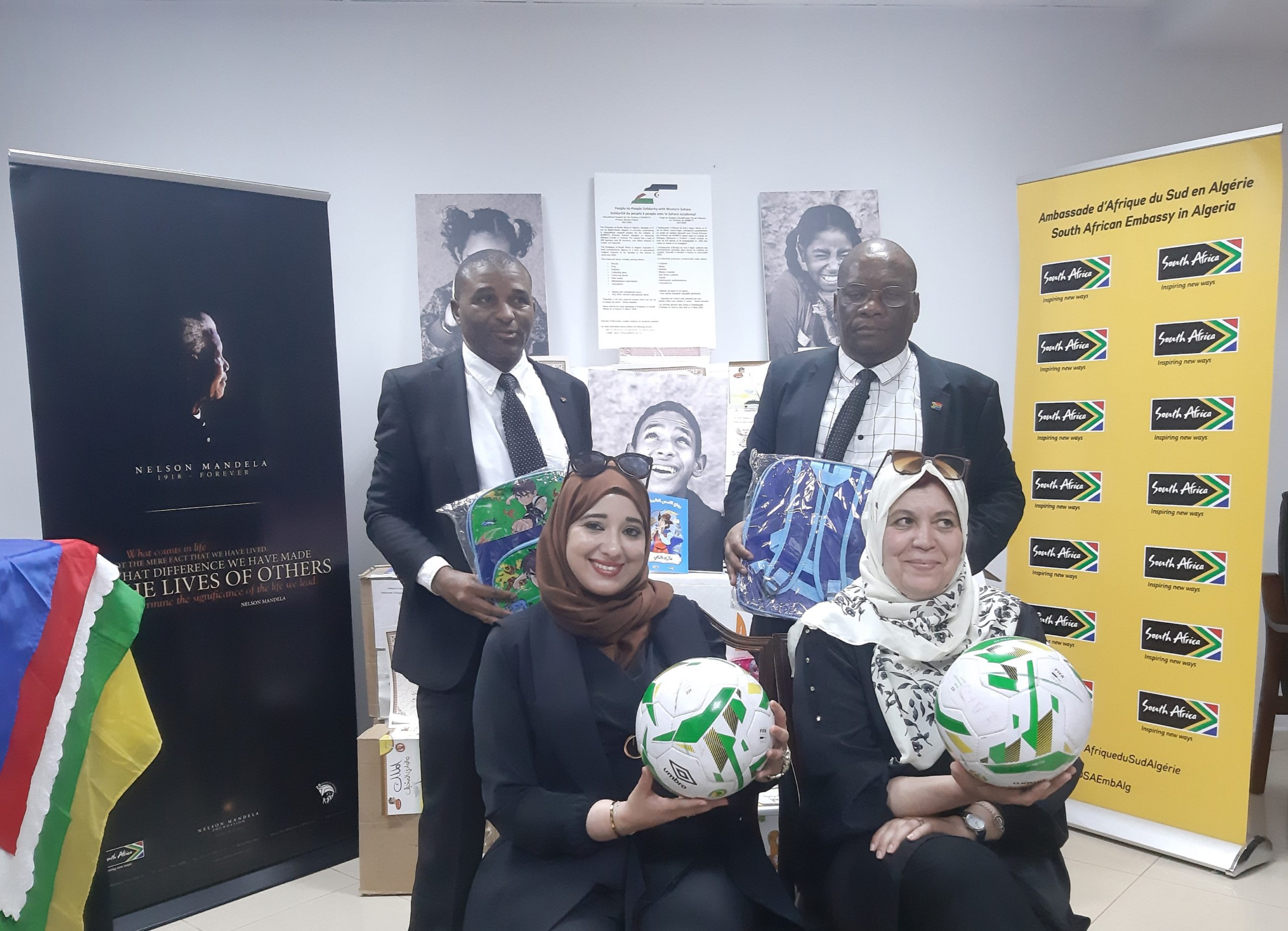
It is worth mentioning that South Africa has maintained a principled position on the right to self-determination for the Saharawi people as enshrined in the United Nations (UN) Charter and the African Union (AU) Constitutive Act. It also intensified its solidarity with the Polisario Front liberation movement, as they lead the people of Western Sahara in their quest for peace and independence.
Back in September 2004, South Africa recognised the SADR when it became clear that Morocco had ruled out any possibility for a referendum for Western Sahara in contravention of UN Security Council Resolution 1495 of 2003.
Diplomatic ties between both countries have been cemented with the SADR having a residential embassy in Pretoria, whilst South Africa’s Ambassador to Algeria is accredited to the SADR. Political and development assistance are rendered to the SADR through the African Renaissance Fund (ARF). In addition, areas of cooperation between both countries exist in the field of diplomatic consultations, arts and culture, youth sports development, as well as humanitarian relief and landmine removal.
The prolonged suffering of the people of Western Sahara and the lack of progress in finding a durable solution to the struggle for self-determination in the territory on the basis of international legality remains a major concern for the South African Government.
Western Sahara is a Non-Self-Governing Territory of the UN that lies in the Sahel region bordered by Algeria, the Kingdom of Morocco, and Mauritania. This territory is home to the Sahrawis, a collective name for the indigenous peoples living in and around the region. They speak the Hassaniya dialect of Arabic. Similarly, many others also speak Spanish as a second language due to the region’s colonial past.
Western Sahara has been on the decolonisation agenda of the UN and AU for more than fifty years. In 1963, Western Sahara was included on the list of non-self-governing territories under Article 73 of the UN Charter to which the UN General Assembly resolution 1514 (XV) of 1960 on the Granting of Independence to Colonial Countries and Peoples.
On November 6, 1975, Morocco launched the so-called ‘Green March’, a march of 350,000 Moroccans, a number four times the size of the Sahrawi population back then, into the territory of Western Sahara.
According to Adala UK, on that day, Morocco organized what it called a “Green March” to officially invade the North of Western Sahara moving 350,000 Moroccan settlers to the territory. This occupation coincided with the termination of the Spanish status as Administrative Power, creating a vacuum that imposed on the UN to assume its responsibility there.
Subsequently, the UN Security Council deplored the holding of the march, calling upon Morocco to immediately withdraw all the demonstrators from the territory of Western Sahara; however, its effort was in vain.
The Polisario Front liberation movement continued its struggle to end all foreign occupation of its country and in 1976 formed a government-in-exile and declared the Saharawi Arab Democratic Republic. In November 1984, the Polisario Front’s SADR was recognised by the then Organisation of African Unity (OAU), now the African Union (AU), which led to the withdrawal of Morocco from the OAU in protest. In May 1991, the Polisario Front and Morocco ended many years of fighting following an UN-sponsored peace settlement, culminating in the establishment of the UN Mission for the Referendum in Western Sahara (MINURSO), which is assuming its responsibility till nowadays.
Despite a cease-fire in 1991 that put an end to the armed combat, Western Sahara remains a disputed territory. Nowadays, Morocco controls parts of the territory. However, the United Nations refers to Western Sahara as a non-self-governing territory and maintains a stance favoring self-determination for its people.
The UN body is attaching great interests to the Sahrawi cause, expressing willingness to find a solution ensuring the self-determination of the Sahrawi people, in accordance with the relevant resolutions of the Council.
After almost 30 years of compliance with a 1991 ceasefire, Morocco and the Polisario Front have resumed war in Western Sahara, as Morocco torpedoed the 1991 ceasefire through its act of aggression on the Sahrawi Liberated Territories on 13 November 2020.
The Moroccan new act of aggression has not only ended the ceasefire and related military agreements but has also undermined the UN peace process in Western Sahara and plunged the region into another spiral of extreme tension and instability.
Both the UN Secretary-General and the Security Council have confirmed the breakdown of the 1991 ceasefire on 13 November 2020. In his report (S/2021/843; para 2) dated 1 October 2021, the UN Secretary-General acknowledged, among other things, “the resumption of hostilities” between the occupying state of Morocco and the Frente POLISARIO. For its part, in its resolution 2602 (2021) adopted on 29 October 2021, the Security Council noted “with deep concern the breakdown of the ceasefire” (PP 14).
The acknowledgment by both the UN Secretary-General and the Security Council of the breakdown of the 1991 ceasefire and the realities on the ground render any attempt to deny or underplay the seriousness of the current situation in MINURSO’s area of operation unacceptable and even misleading at a time when the occupying state of Morocco continues its aggression on the Sahrawi Liberated Territories and its deliberate targeting and killing of civilians and destroying their properties.
The final status of the state of Western Sahara will only be settled when a UN-supervised referendum is held in which the country’s inhabitants must exercise their legitimate right to self-determination.
To this end, South Africa remains confident that a date for holding of a referendum on the self-determination of the people of Western Sahara, will be realised, while reiterating, on different occasions, its unwavering commitments to continue to walk with the people of Western Sahara until they are free to live in their own land and be able to determine their own future.
These commitments to defend the oppressed in the world are the outcome of a long-lasting struggle undertaken by the people of South Africa to end the apartheid system in this country, considered to be among the most powerful and advanced country on the African continent. It has the most stable legal system and financial systems in Africa and is a land of great beauty and natural riches such as diamonds, coal, gold, and uranium.
This diversity and wealth made South Africa, for a long time, subject to colonialism, slavery, political terrorism and the greed of the British and Dutch colonialists who came the African country in the 19th century to make their fortunes at any cost.
The people of South Africa immortalized their history following an honorable struggle for independence, defeating the Apartheid (Ross), racism and segregation in this culturally rich county which rose the motto “one nation, many cultures”. Back in History, South Africa was colonized by Holland, France, and Britain. Many Europeans had tried to settle in South Africa before only to be driven out by the native people. The route to Asia around the Cape of Good Hope made many Europeans interested in the possibility of colonizing South Africa. The Dutch East India Company was able to establish shipping routes and became permanently established in South Africa. By 1869 the French had built a canal across the Isthmus of the Suez. In 1884 and 1885 several European countries met in Berlin to plan the division of the South African portion of Africa. By 1900 the British colonized Uganda, and 90% of Africa was divided by other European countries (Goodman). Britain’s Queen Victoria sponsored explorations into every part of Africa, and missionaries came to convert the natives and grab the wealth of these countries, including South Africa. In 1912, the African National Congress was formed to fight for independence from its European oppressors.
For the next forty years, the majority black populations of South Africa were fired from their jobs, stripped of their lands, and deprived of their right to vote. Black mine workers were paid twelve times less than whites. The miserable conditions of the black, along with the political unrest, violence, burning of villages, and segregation of blacks and whites led to boycotts and riots. To this end, the white minority government created Apartheid, which segregated the non-white population from the white minority (Davis). Strict Apartheid laws controlled where people could live, go to school, work, and who they could interact with. Opposition leaders were beaten or jailed for striking or demonstrating against the rules. The word Apartheid is Afrikaan for “apartness”. South Africans were divided into four groups: Blacks, Whites, Asian, and Colored. The white minority controlled 80% of South African land, Blacks were stripped of their citizenship and women were pushed to the side.
Apartheid lasted form 1948 to 1994. During this violent struggle for freedom, many answered the call to resistance to reclaim their nation. In 1952, Nelson Mandela and Tambo opened the first black law firm in South Africa. In 1956, Nelson Mandela was charged with high treason but not found guilty. Nevertheless, he was sentenced to life emprisonment for denouncing the cruelty of Apartheid. He became a hero for South Africans, the torchbearers, despite the threat of death and prison. Mandela was released from prison after twenty- eight years in 1990. He was awarded The Nobel Prize for peace in 1993 for his tireless efforts to free South Africa from racism and segregation.
He was elected as the first black president of South Africa in a democratic election in 1994 (Mallaby). The struggle for independence in South Africa was extremely costly !
This blood-soaked past enabled the country, like Algeria, which suffered from French colonialism, to deploy all efforts in defiance of the oppressed all over the world. More recently, the suspension of the decision granting the Zionist entity observer status in the African Union (AU) is to be classified in the chapter of Algerian and South African diplomatic victories as both countries were among the first to oppose this decision which goes against the founding principles of the pan-African organization. On different occasions, South Africa’s President Cyril Ramaphosa utters support for the Palestinians.
“As lovers of freedom and of justice, we stand with the Palestinian people in their quest for self-determination, but also in their resistance against the deprivation of their human rights and the denial of their dignity,’’ Ramaphosa wrote in his weekly column.
By: Hana Saada


